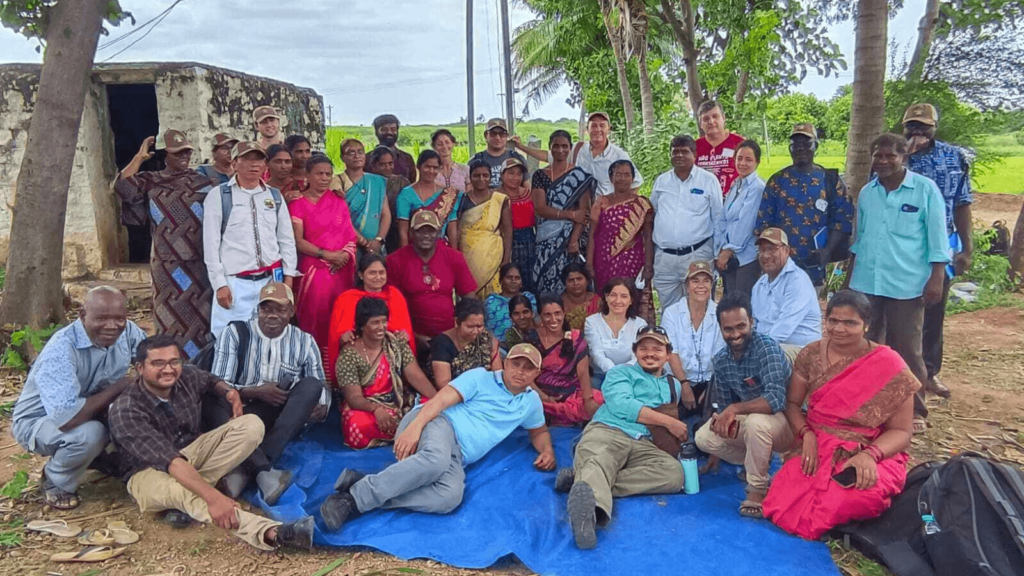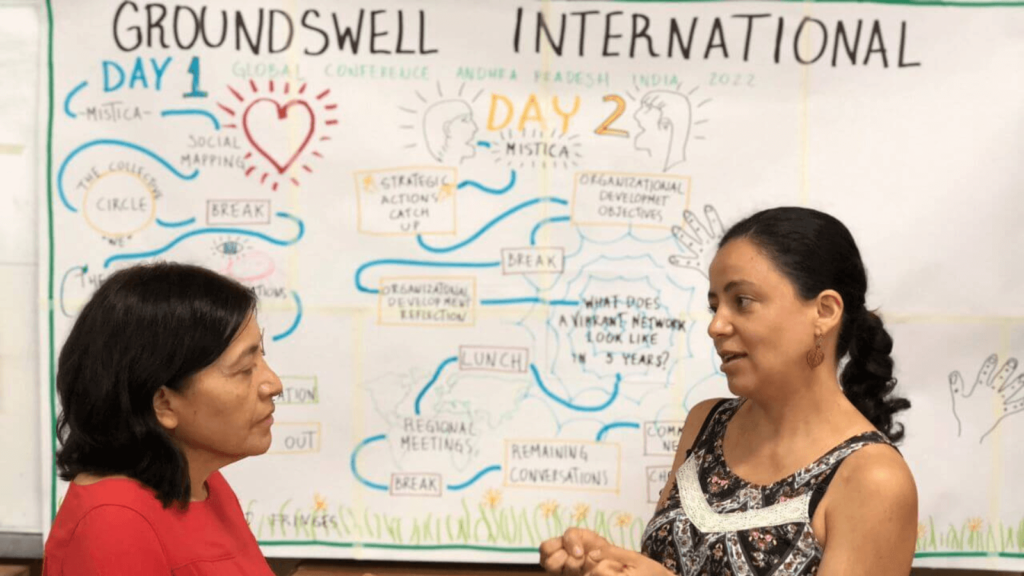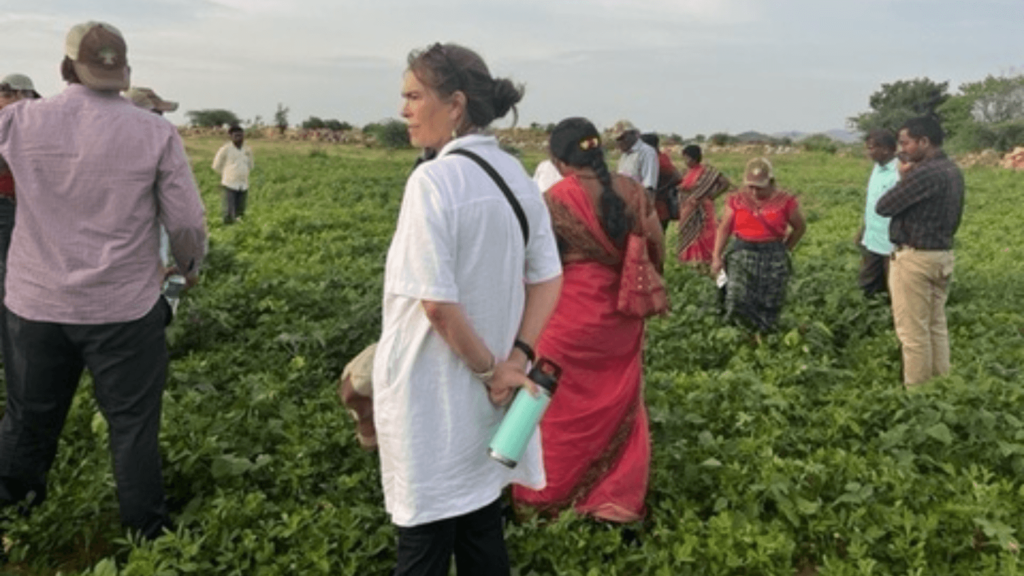Global Conference 2022
During the week of September 19, Groundswell International gathered with our partners from fourteen different countries throughout the world in the Anantapuramu district of Andhra Pradesh, India for our 2022 Global Conference.
The week also included field visits throughout Anantapuramu, where government support has enabled Rythu Sadhikara Samstha (RSS) to create a practice of community-managed natural farming that serves as a model for India, to observe the agroecological practices of the communities there. We met with women farmers, learning of their involvement in self-help groups within the community. We learned about the farmer-to-farmer network laid out for sharing resources as well as the various natural farming technologies in use.
Below is a message from Executive Director, Steve Brescia, summarizing the trip.
Friends,
We just returned from a phenomenal Groundswell International global conference in India – jet-lagged, but super-charged. We were generously hosted by the Andhra Pradesh Community Managed Natural Farming program (APCNF), perhaps the largest agroecology program in the world, and were able to visit and learn from women’s groups, farmers, and rural communities. We also finished shaping Groundswell’s next Strategic Framework (2023-27), based on our planning process begun over a year ago.

Nothing is easy in the world these days, but through mutual support and sheer tenacity we were able to gather 28 people (from 14 countries), representing our member organizations, staff, board, and allies. We overcame the challenges of political unrest and violence in multiple countries, COVID-19, delayed transit visas, air traffic controller strikes, high ticket costs, and last-minute travel diversions and lost luggage. While we’ve gotten pretty good at virtual coordination over the last few years, gathering together revitalized our human connections, energy and insights for the collective work ahead.
We are grateful to Vijay Kumar, who directs the APCNF program, and his great team for their support. The APCNF program is built on strong social organizing – years of strengthening a vast network of women’s self-help groups (over 160,000 SHGs involved so far). It supports them to test, adapt and spread effective agroecological principles and practices, farmer-to-farmer, as they work towards their vision of reaching 8 million farmers and farm workers and regenerating 8 million hectares of degraded land in the state of Andhra Pradesh by 2031.
Many of the APCNF strategies resonate strongly with those of Groundswell’s member NGOs in West Africa, the Americas, and South Asia. What is profoundly different in Andhra Pradesh is the strong government commitment and to support millions of smallholder farmers to make the transition from chemical based to agroecological farming to sustainably improve their lives.

As is always the case, exposure to other experiences shines a light on our own. It generates insights about how we can improve what we are doing now, and what larger possibilities exist. One way we plan to follow up is by coordinating small groups of farmers in 10 countries in West Africa, the Americas and South Asia to experiment with and adapt some key techniques to catalyze soil biology, productivity, and carbon sequestration. Farmers will validate what works for them in their contexts, and what can be spread to others.
We also look forward to sharing with you Groundswell’s updated Strategic Framework in the coming months. Among other things, over the next five years we’ll build on our current successes and work to increase leadership opportunities for women, better mobilize youth, and strengthen territorial strategies to build healthy economies and climate change resilience based on agroecology.

Albert Einstein said, “Imagination is more important than knowledge.” I’ve heard others comment recently that imagination may be the resource we lack most in the world today. The world is in crisis because we are locked into extractive ways of producing and living that have led us here. Can we use imagination and collaborative work to make different choices, to spread real and regenerative solutions that already exist?
We see it happening. In rural communities, agroecological farmers are working to create a critical mass of effective alternatives, that can catalyze change at community and landscape levels. Women come together in self-help groups, building a sense of mutual support and collective power, and taking action to improve their land and lives. We felt that same spirit of local solidarity and trust in our global gathering, along with our allies from Andhra Pradesh.
We are part of a wider movement creating very real and hopeful alternatives. As we left our gathering and returned each to our own countries, to local action and virtual coordination, we carry forward a great sense of what is possible in creating from the ground up farming and food systems that are healthier for people and the planet.
